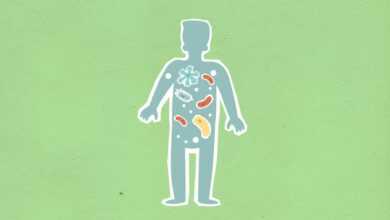
Eating for Health: How Nutrition Impacts Mental and Physical Health
Nutrition plays a crucial role in maintaining both physical and mental health. A healthy diet can help to reduce the risk of chronic diseases such as heart disease, diabetes, and obesity, and can also have a positive impact on mood and cognitive function. In this article, we will explore the relationship between nutrition and mental health, including how certain nutrients can impact mood, anxiety, and depression. We will also provide practical tips and advice for eating a healthy, balanced diet that supports mental and physical health.
The Link between Nutrition and Mental Health Studies has shown that the foods we eat can impact our mental health. Certain nutrients have been found to have a positive impact on mood, anxiety, and depression. For example:
- Omega-3 fatty acids: Omega-3 fatty acids, found in fatty fish, nuts, and seeds, have been found to reduce symptoms of depression and anxiety.
- B vitamins: B vitamins, found in whole grains, meat, and leafy greens, have been linked to improved cognitive function and a reduced risk of depression.
- Magnesium: Magnesium, found in leafy greens, nuts, and whole grains, has been found to have a calming effect and can help to reduce symptoms of anxiety.
Tips for Eating for Health Here are some tips for eating a healthy, balanced diet that supports mental and physical health:
- Eat a variety of nutrient-dense foods: Aim to eat a variety of fruits, vegetables, whole grains, lean proteins, and healthy fats. This will ensure that you get a wide range of nutrients that are important for overall health and well-being.
- Limit processed foods: Processed foods are often high in sugar, salt, and unhealthy fats, and can contribute to chronic diseases and poor mental health. Try to limit your intake and choose whole, minimally processed foods instead.
- Stay hydrated: Drinking plenty of water can help to improve cognitive function and mood.
- Mindful eating: Paying attention to your food and eating slowly can help you to feel more satisfied and prevent overeating.
- Seek professional help: If you struggle with disordered eating or have a medical condition that affects your diet, seeking professional help can be an important step in improving your health and well-being.
In conclusion, good nutrition is essential for both physical and mental health. By eating a healthy, balanced diet that includes a variety of nutrient-dense foods, you can support your overall health and reduce the risk of chronic diseases. By paying attention to the link between nutrition and mental health, you can make informed choices that support your mental and emotional well-being as well.




